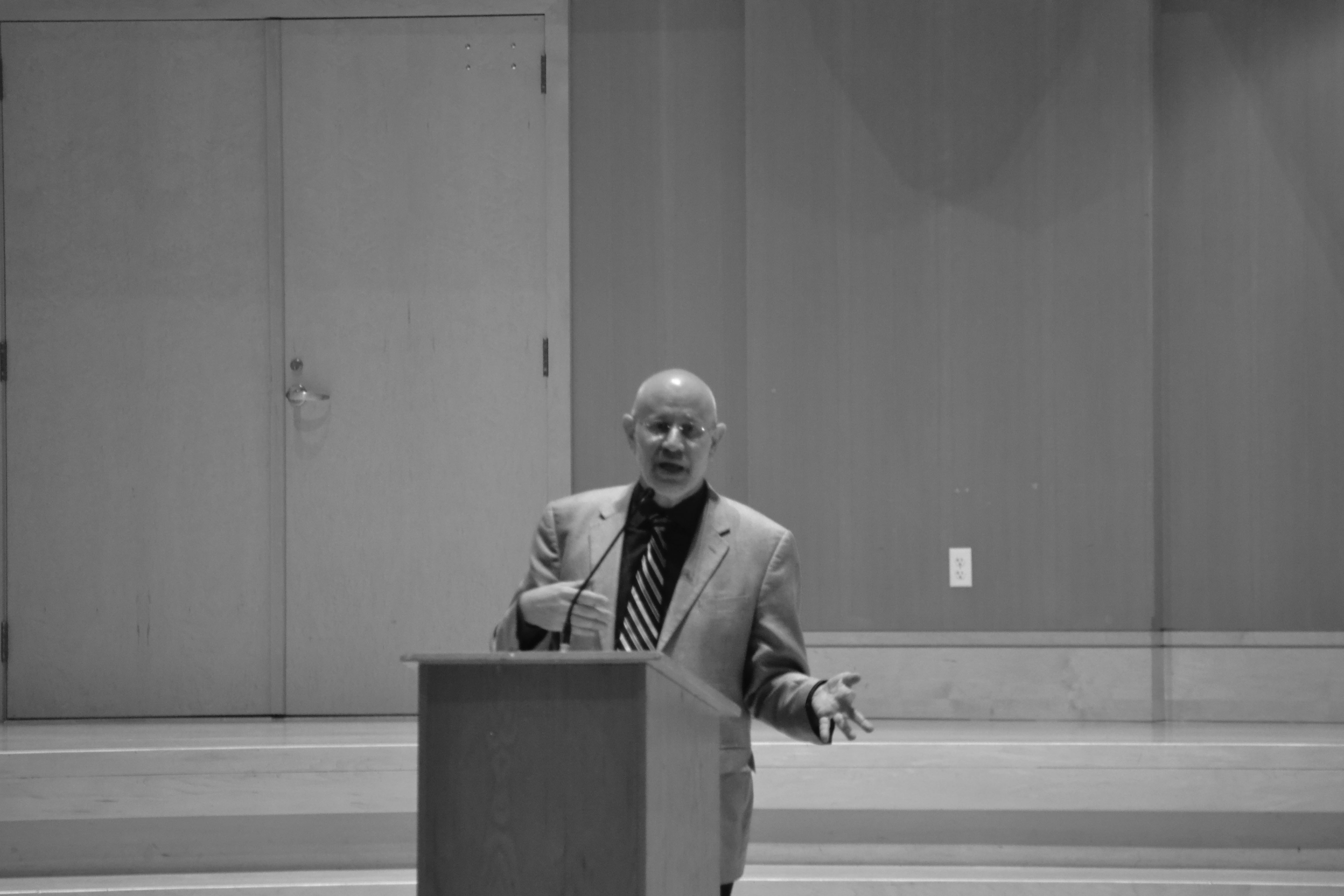
BEN COX
News Writer
coxbd@plu.edu
The Lutheran Studies Conference helped the Pacific Lutheran University community learn more about another culture and religious belief. The annual conference was held last Thursday, September 24.
Several presenters shared a wealth of knowledge regarding Jewish-Christian relations both past and present. This fascinating topic was chosen because 70 years ago the Nazi concentration camps were liberated.
While we are better about interfaith dialogue now that we were then, we still have a long way to go to achieve justice and understanding between all people, which is where this conference comes in.
Almost 6,000 hate crimes were reported by the FBI in 2013, not to mention the countless more atrocities that have gone unreported. To end this and to reach our full potential we must learn from and about our neighbors who very well may not agree with us because, as Margaret Wheatley put it, “You can’t hate someone whose story you know.”
To kick off the day, Dr. Agnes Choi discussed the “parting of the ways” between Judaism and Christianity. Christianity was originally a reform movement within Judaism, and many Christians held onto Jewish traditions for several centuries.
One may note the history, beliefs and traditions that are shared between Christians and Jews and wonder why there has been such anti-Semitism in the last few centuries. Dr. Mike Halvorson, the second speaker of the day, looked to 16th century Germany and Martin Luther as part of the cause. While Martin Luther did have countless inspirational insights that are well known, his animosity towards the Jews is frequently overlooked. Yet Dr. Halvorson explained that “only by studying the past can we move beyond it.”
While Luther chose to deal with disagreements through hostility, that doesn’t mean that present day Lutherans have to. History teaches us that we are both able to learn from and coexist with various cultures, and the first step towards this is to avoid stereotypes and to seek understanding.
Dr. Heather Mathews shared a few visual masterpieces from the era immediately following WWII which reflected the tragic stories of the Holocaust. These inspiring paintings remind us yet again of the need for understanding and communication so as to prevent anything similar from ever happening again.
Looking at a different form of art, Dr. Samuel Torvend hosted “The Songs We Share in Common” in which several facets of the human experience were explored through ancient psalms. They were sung in various ways ranging from the original Hebrew to Duke Ellington’s jazz interpretation of Psalm 23.
Multiple times it was made clear that the Jewish community is willing to have inter religious conversations. Dr. Suzanne Crawford O’Brien talked about the Jewish healing movement and Rabbi Bruce Kadden discussed Dabru Emet, both of which encourage Jews to work together with Christians. Have we as Christians done our part in returning the favor? As Dr. Darrell Jodock shared, we could be worse, but we definitely could also be better.
Keynote speaker Dr. Yaakov Ariel ended the day with his exploration of interfaith dialogue in American history which left people aware of the value of having different faith groups talk to each other.
Here at Pacific Lutheran University, we are committed to justice, diversity,and sustainability. To fully achieve any of these, inter-religious and inter-cultural conversations must occur in a non-discriminatory fashion.
“Here at PLU,” said Dr. Torvend “one will not find a friendly home for prejudice.” However, what one will find is an environment conducive to discussion and an ongoing search for knowledge that is just waiting to be tapped into.

















